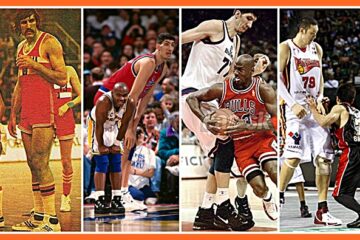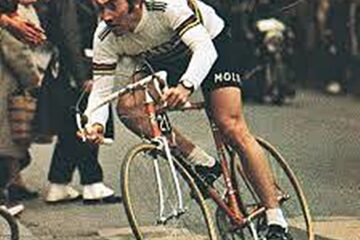1960 | Domination of Eastern countries in the first European Championship!
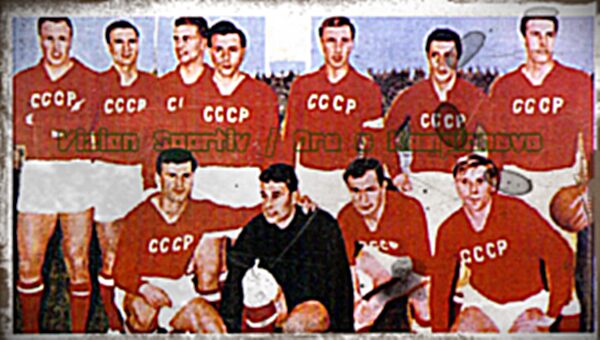
1960 SOVIET UNION – FIRST EUROPEAN CHAMPION!
1. “Svehla Pokal”
At the beginning of the season, there was the “Svehla Pokal” trophy. Of course, we are not talking about any aromatic candy, but an old German designation of the International Cup, when in 1926, the fronts of European football were divided. On the one hand, the British countries, isolated minds proudly defending the sacred principles of amateurism, and on the other hand, the powers of Central Europe: Austria, Hungary,
Czechoslovakia, which, on the contrary, can’t wait to create a reliable hierarchy. The early trophy was named the Švehla Cup after Antonín Švehla, the Prime Minister of Czechoslovakia, who had donated it. After World War II, the trophy was known as the Dr. Cup. Gerö in honor of Josef Gerö, a director of the Austrian Football Association and former match referee. Thus was born in the heart of old Europe, the first international trophy among the countries, where Italy and Switzerland are added to the aforementioned countries. The trophy in question was conceived by Austrian football pioneer Hugo Meisl, considered by some to be one of the fathers of European football. Meisl was also the man who started the Mitropa Cup, a knockout competition for clubs from the same countries, which also began in 1927. Meisl managed Austria during the Wunderteam era of the 1930s and led them to victory in the Svehla Cup. in the 1931-32 edition. The first tournament played between 1927 and 1930 was won by Italy inspired by Giuseppe Meazza. Meazza and Italia also won the competition in the 1933-35 season. This time the team was led by Vittorio Pozzo.
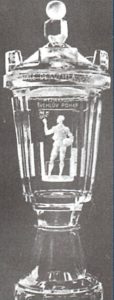
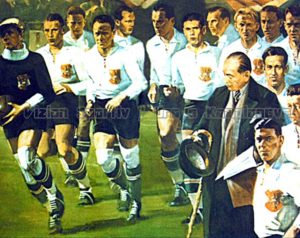
The “Svehla Pokal” trophy and the great team of Austria “Wunderteam” led by Ugo Meisl.
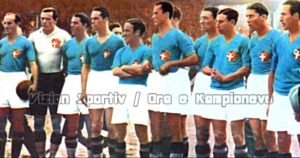
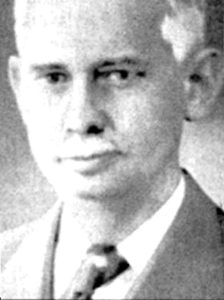
Italy, the most successful team of the “Svehla Pokal” trophy, in the middle of the years
1937 and 1930 as well as 1933-35. Perkrah is the first president of UEFA and
the creator of the European Championship, the Frenchman Henry Delanoay.
The fourth tour that began in 1936 was eventually abandoned due to the Anschluss crisis and World War II. This tournament marked the arrival of Hungary’s Golden Team, coached by Gusztáv Sebes and featuring Ferenc Puskás, Zoltán Czibor, Sándor Kocsis, Nándor Hidegkuti, József Bozsik and Gy. They won the trophy after a 3–0 victory over Italy in Rome in 1953. The Svehla Cup was mainly run as a round-robin league, it was held six times and each single tournament usually took more than two years to complete. to be completed. The last two tours lasted five years! How will this adventure end? Something like this: the edition that I start in 1948, “loses its way”, and does not manage to finish. At the beginning of the 50s, the Frenchman Delaunay, the secretary of the newly born UEFA organization, has the good idea to create a European championship for nations. De-Stalinism and East-West fusion give UEFA the impetus to create the European Nations Championship, which replaces the Intercontinental Cup “Svehla Pokal”.
* * *
Not only Football
Time as we were:
It was the time, when in the Soviet Union, Khrushchev distanced himself from Stalinism. Meanwhile, in Moscow, at the meeting of the leaders of the communist parties, in November 1960, the ideological and political disagreements between RPSH and BS deepened. In Albanian-Soviet relations, an all-encompassing crisis began to develop rapidly. In December 1961, they will be finally interrupted.
– In Albania, Dinamo wins the title of Champion and Cup of the Republic. Meanwhile, our national team will not be active in this edition.
– In Italy, Juventus wins the championship title. Italians mourn the loss of Fausto Kopi, the world famous cyclist, and share together “La dolce vita” by director Fellini.
– 1960 is the year of the creation of the pop-rock group “The Beatles”. Two years later, another English group “The Rolling Stones” will appear on the stage.
– October 7, 1956. In Paris, the golden Hungarian formation of Pushkash, Hidekut and Kocish descends on the field for the last time…. 15 days later, in Budapest, a revolt of the Hungarian people will turn into bloodshed by the Soviet troops . The representative of Hungary refuses to return to her homeland. Hungary, which will take part in the qualifiers of the first European Championship, will not be the same as the big champions, the world sub-champion team in v. 1954.
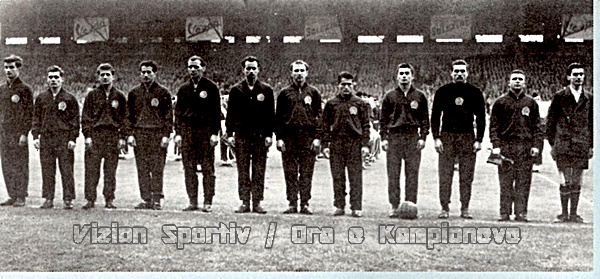
2. The first European Championship.
At the launch of this new trophy, there will naturally be a lot of those who believe in it. However, the project that survives the opposition begins and comes to life. The draw for the qualifying matches will be made in Sweden, in 1958, exactly during the World Cup competitions. Here is a great idea to give anonymity to a creature born amidst doubts, controversies and uncertainties. The melancholic end of the “Svehla” International Cup, the lack of interest of many federations (which are only 17 registered in participation among the 33 members of UEFA), the death of the creator Henry Delaunay, however, do not manage to discourage UEFA, which does not nothing to adequately advertise the product, but in September 1958, it officially launched the first edition of the trophy.
Absences will be big from the German RF, England, Scotland, which do not like the long eliminatory marathon at all and drop their participation claims. The Italian federation refuses participation and withdraws the “azurra” team with the motive to avoid its scandalous appearance. It is the weakest period of time for the “Azzurra” team, which on May 12, 1957, suffered a deep defeat against Yugoslavia (1-6) specifically for the “Svehla Pokal” Intercontinental Cup, and then on January 15, 1958, lost in Belfast 2-1 against Northern Ireland, being eliminated from the World Cup edition, which is its only case in history.
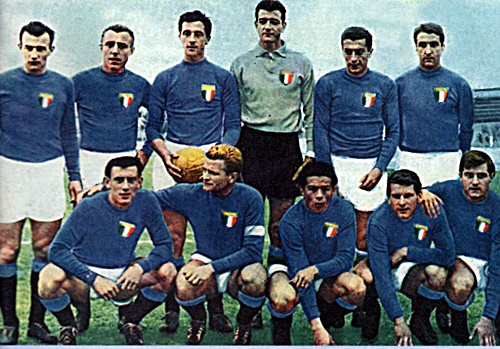
The Italian formation that won the deep draw in Zagreb against Yugoslavia: (from left to top) Cervato, Chiappella, Orzan, Lovati, Prini, Segato. (seated) Magnini, Boniperti, Montuori, Gratton, Virgil.
Thus, the managers take the decision that it is not the time to participate in such a tournament where new disappointments can be weighed. The Italian team of “originals” Ghiggia, Schiaffino, Montuori, does not participate. It is better to work calmly for the collection of the new element and the reconstruction of a strong team. This is how the leaders of the time of the Italian Federation end.
The Netherlands, Belgium and Switzerland also refuse, each for different reasons, and thus the tournament is dominated by the Eastern teams, which in the end will completely occupy the podium of a tournament that will have a total of 17 participating teams (which will be made immediately 16 from one preliminary) without groups, but with a two-year elimination system, in two games each, round trip. Only the semi-finals will be played in a single place where France was chosen in honor of Delaunay.
The contenders will be France, third in the 1958 World Cup, Spain, Czechoslovakia, but above all the Soviet Union, which will be the only representative to believe in the new trophy. They have won Gold Medals in the Melbourne Olympics in `56 and the team led by coach Katshalin has three strong points in its composition, the phenomenal goalkeeper Jashin, the organizer in the midfield Netto, and the refined striker Ivanov.
On September 28, 1958, in the deputy match at the “Lenin” stadium, in Moscow, about a hundred thousand spectators gathered in the first challenge of the round of 16. In the 4th minute, when Ilijin scores, the crowd can’t hold back…. The Soviets will defeat what is left of that great Hungary 3-1, with the goals of Iljin (4′), Metreveli (’20) and Ivanov (`32). For the Hungarians, the only goal was scored by Gorocs (`84).
Even in the return match in Budapest, the Soviets will win 1-0 with a goal by Voinov (`58) and advance to the quarterfinals. In the quarter-final B. Soviet, it is scheduled to face Spain, in a match that is thought to be the best in European football at the time. The naturalized ones, the Argentinian Afredo Di Stefano, the Hungarians Ferenc Pushkash and Kubbala, in front of the best goalkeeper in the world, Lew Yaschin.
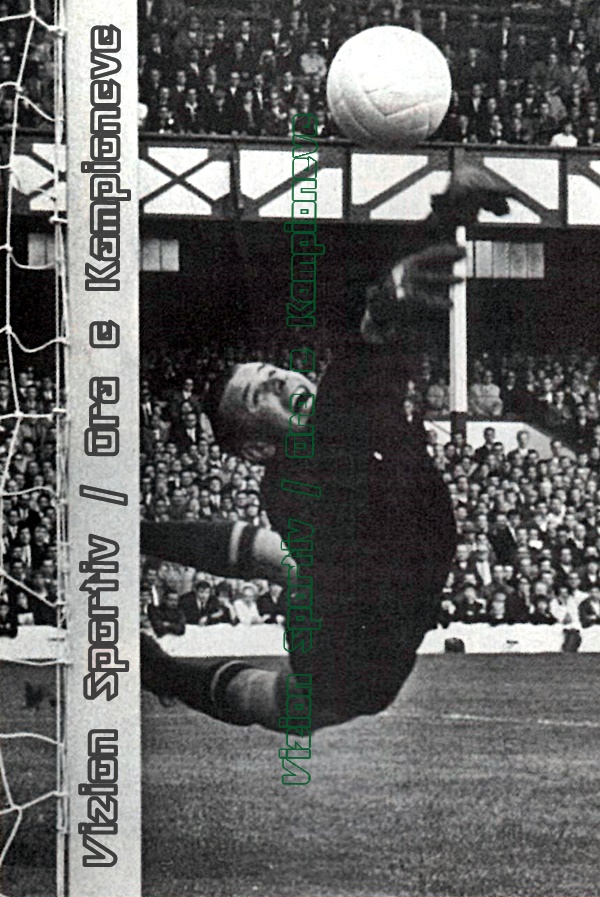
“The Black Spider” – Lew Yaschin! The great goalkeeper of the Soviet Union, and the best in the world for the time.

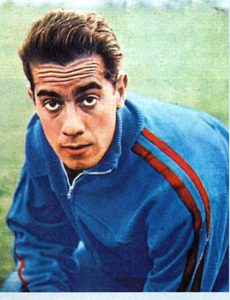
The famous Spanish naturalized trio, Raimond Kopa, Alfredo Di Stefano, and Ferenc Pushkash. On the side is the photo of Luisito Suarez, one of the points the strongest in Spain, who will also become famous as the coach of Inter Series “A”
Everyone is looking forward to it, but for political reasons, Franco’s Spain gave up playing against the Soviet representative and thus the latter pass without playing in the semi-finals. Spain, which is dominating Europe at the club level thanks to Real Madrid, was one of the three candidates for winning the European title, but it was “eliminated” by General Franco himself, who refused to play against the Soviet Bolsheviks.

Yugoslav Jerkovic and Czechoslovakian J. Masopust
Then who would stop the “red army”?
* * *
Semifinals in France (July 6-10, 1960)
In the semifinals played in Marseille on July 6, 1960, the Soviets will face Czechoslovakia, which had defeated Romania in the quarterfinals. The match was completely dominated by the Soviets who won it 3-0 (35`, 56` Ivanov; 65` Ponedelnik).
The teams enter the field with these formations:
BS: Jascin; Thekheli, Krutikov, Voinov, Maslenkin, Netto, Metreveli, Ivanov, Ponedelnik, Bubukin, Maskhi CZECHOSLAVAKIA: Schroiff: Safranek, Novak, Bubernik, Popluhar, Masopust, Voita, Moravcik, Kvasnak, Bubnik, Dolinsky
Referee : Jonni (Italy)
Semi-final of the second, played in Paris, between the natives of France and Yugoslavia, is more entertaining. A total of nine goals are scored in a match with emotions and surprising reversals. Thus, in the 11th minute, Galic opened the series of goals for the Yugoslavs (0-1), but a minute later Vincet (12′) equalized the score 1-1; In the 43rd minute, Heutte puts France ahead 2-1, a result that ends the first 45 minutes.
In the second half, in the 52nd minute, the French score again with Wisnieski. France leads 3-1. But only three minutes later, in the 55th minute, Zanetic will reduce the goal difference to 3-2. It’s the 62nd minute when Heutte “secures” France in 4-2, the French start to think that everything is now on their side towards the first European final. Well, from that minute, everything will go against them. In the 75th minute, Knez cuts the score again for his friends at 4-3.
Two minutes later, in the 77th minute, Jerkovic equalizes at 4-4, and in the 78th minute, Jerkovic will score the winning goal for the Yugoslavs who are not believed to have won. For only three minutes, (75`-78`) they will know not only to equalize the result, but to win this semi-final with strong heartbeats. France 4 and Yugoslavia 5!
Both teams play with these players:
FRANCE: Lamia; Wending, Rodzik, Marcel, Herbin, Ferrerier, Heutte, Muller, Wisnieski, Stievenard, Vincent YUGOSLAVIA: Soskic`; Durkovic`, Jusufi, Zanetic`, Zebec, Peruzic, Knez, Jerkovic`, Galic`, Sekularac`, Kostic`
Referee : Grandain (Belgium)
Final Paris: July 10, 1960
After passes without much difficulty, Czechoslovakia in the semi-finals, The Soviet Union will face the representative of Yugoslavia, which has eliminated France with the result 5-4 in a pyrotechnic, exciting match. The final will not be an easy match, but the Soviets have a strong and reliable game mechanism. While the Yugoslavs can rely on the first line of attack with wings like Sekularac and Kostic. Galic’ in the center with support from behind Jerkovic’.
The prominent players, the real champions, are already present, in this first activity, but the absence of the public, who does not seem so interested, is felt. In this first final match, only 18,000 spectators will be present. This challenge, from the start, seems to have the Slavs as the protagonists, who will disrupt the great goalkeeper Ljev Jashin in several decisive interventions. In the 40th minute, even the advantage goal for those with the side of Galic, who puts the ball in the right triangle, where Jashin cannot reach. Will the Soviet colossus be able to get back on its feet? Definitely yes.
The draw will be reached at the beginning of the second half with the side of Metrevel after a pile of legs of the players. 1-1! The draw will last for the full 90 minutes. To announce the first champion of Europe, both teams are forced to go to extra time (2×15`). In extra time, Yugoslavia plays better, but the Soviets score the winning goal. In the 7th minute of the second overtime, the cross of Maskhi and Ponedelnik, after a separation in the air, where no one can reach, hits the ball with his head, smashing the ball into the net and giving the first European title to the Soviet Union .
BS – Yugoslavia 2-1
Scored: 41` Galic (J); 49 `Metreveli (BS); 113` Ponedelnik (BS)
Referee: Ellis (Eng.)
BS: Jashin; Thekheli, Maslenkin, Krutikov, Voinov, Netto, Metreveli, Ivanov, Ponedelnik, Bubukin, Maskhi YUGOSLAVIA : Vidinic`; Durkovic’, Miladonovic’, Jusufi’, Zanetic’, Perusic’, Sekularac’, Jerkovic’, Galic’, Matush, Kostic’.
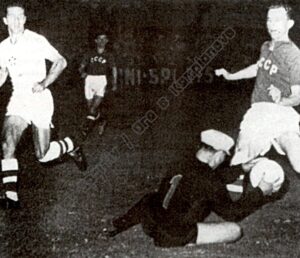
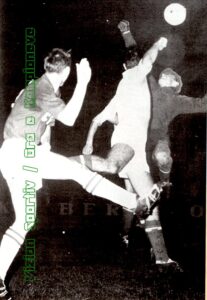
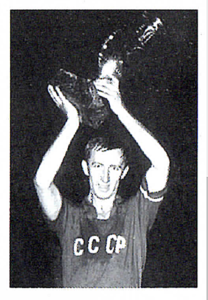
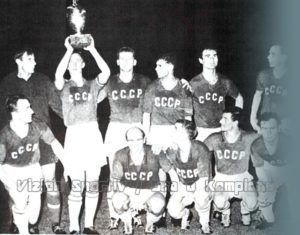
The captain and the author of the winning goal with the Union team The Soviets lift the first trophy of the European Championship.
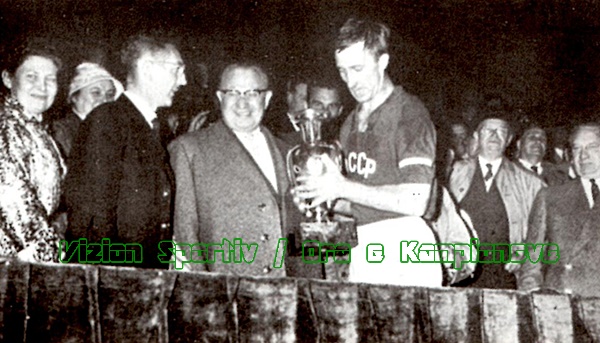
The Soviet Union is crowned European Champion
The match for the 3rd place France. July 9, 1960.
Marseille. Stadium: “Vélodrome”.
Czechoslovakia – France 2-0 (0-0)
Scored: 58′ Vlastimil Bubnik 1-0, 88′ Ladislav Pavlovic 2-0.
Referee : Cesare Jonni (ITA). | Spectator : 9,438
Czechoslovakia : 1 Viliam Schrojf; 2 Frantisek Safranek, 3 Ján Popluhár, 4 Ladislav Novak, 5 Titus Bubernik, 6 Josef Masopust, 7 Ladislav Pavlovic, 8 Josef Vojta, 9 Pavol Molnar, 10 Vlastimil Bubnik, 11 Milan Dolinsky. Tr. : Rudolf Vytlacil.
France : 1 Jean Taillandier;, 2 Bruno Rodzik, 3 Robert Jonquet, 4 André Chorda, 5 Jean-Jacques Marcel, 6 Robert Siatka, 7 François Heutte, 8 Yvon Douis, 9 Maryan Wisnieski, 10 Michel Stievenard, 11 Jean Vincent.
Tr : Albert Batteux.
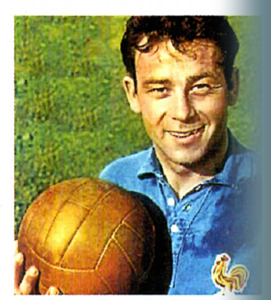
The best scorer of the time, the French Just Fontain!
The best scorers of this tournament were announced:
Bubernik (Czechoslovakia); Fontaine (France); Vincent (France) with 5 goals.
At the end of the first European tournament, there is a trio as the best scorers.
The “surprise” in this case is the Czechoslovak Bubernik, a midfielder who manages to come out on top as a scorer thanks to two goals scored against Denmark and Romania, and another against Ireland in the preliminary round.
While for Fontaine, it is a completely different story. He is already confirmed as a goleador.
In the V. 1958 World Cup in Sweden, he was declared the best scorer with 13 goals. He is exactly a hero of the passing moment, because he will play only 20 games with France where he will score 31 goals!
In March 1960, he will be seriously injured without being a participant in the finals held in France. However, in the ranks of “le blues”, Fontain’s absence in the final four will be replaced by Jean Vincent, Zhysti’s friend and friend where they play together with “Reims”. Vincent, will score 22 goals in 44 matches with France, figures that are to be taken into consideration for a player who is born as a right forward and later comes being pulled back to the midfield until over the years she will turns into a “refinisher” of shares for teammates.
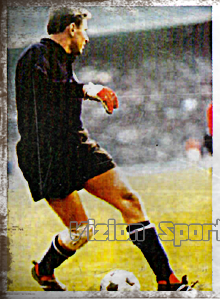
Ljev Jashin, the 12th player of the representative Sovkjetika.
12th player
Lew Yaschin. 31 years old and at the peak of his career when he was declared European champion. In the Olympiad of v. 1956, in Melbourne, famous and known with the nickname “Black Spider” (because of his uniform, plastic reactions, and ability to protect the goal) he made a great contribution in winning the first Cup title.
Yaschin will win the “Topi e Arte” in 1964. He will wear the jersey of the Soviet Union until 1967, having collected 78 appearances with the Representative.
The main pillar of the Dynamo Moscow team for more than 20 years (`50 – `71), he will change his life in 1991.
_______________________________________________________________
ALL THE RESULTS OF THE FIRST EDITION OF THE EUROPEAN FOOTBALL CHAMPIONSHIP
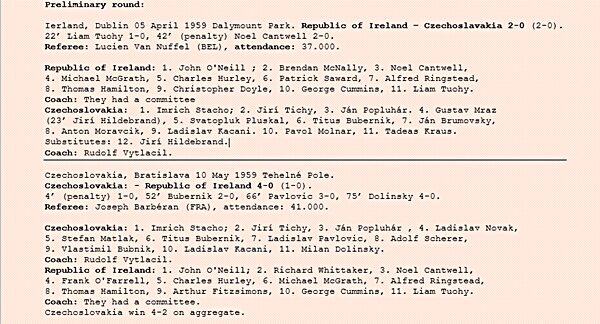
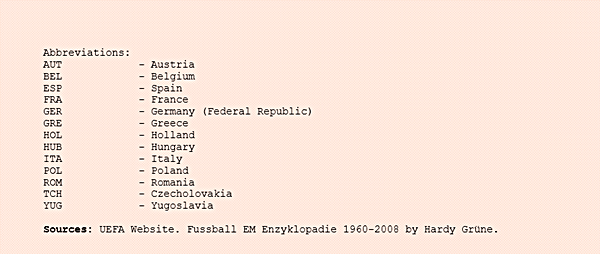
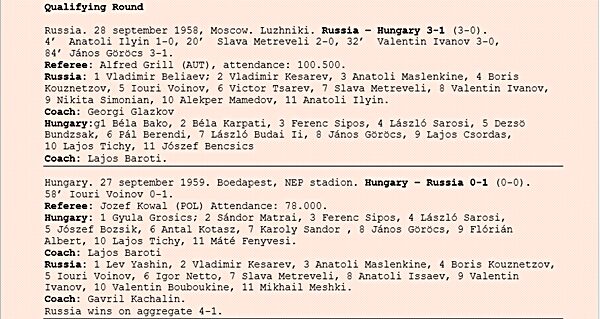
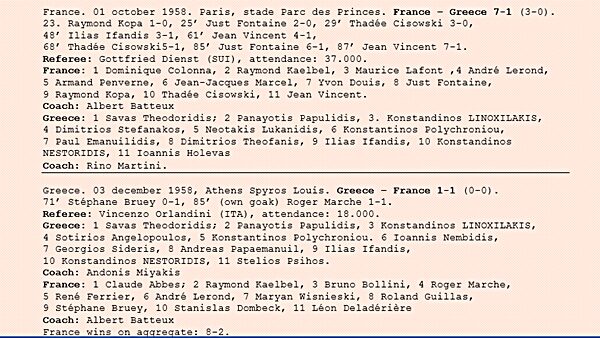
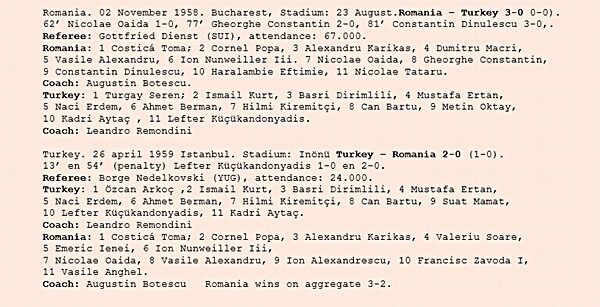
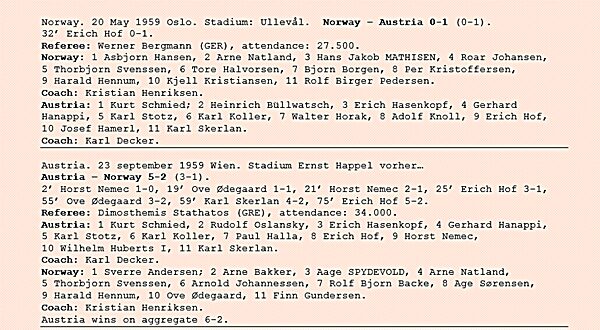
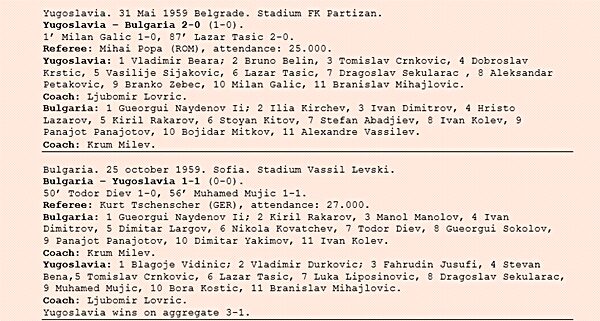
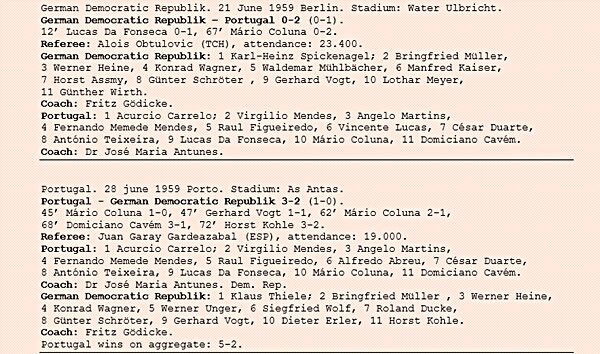
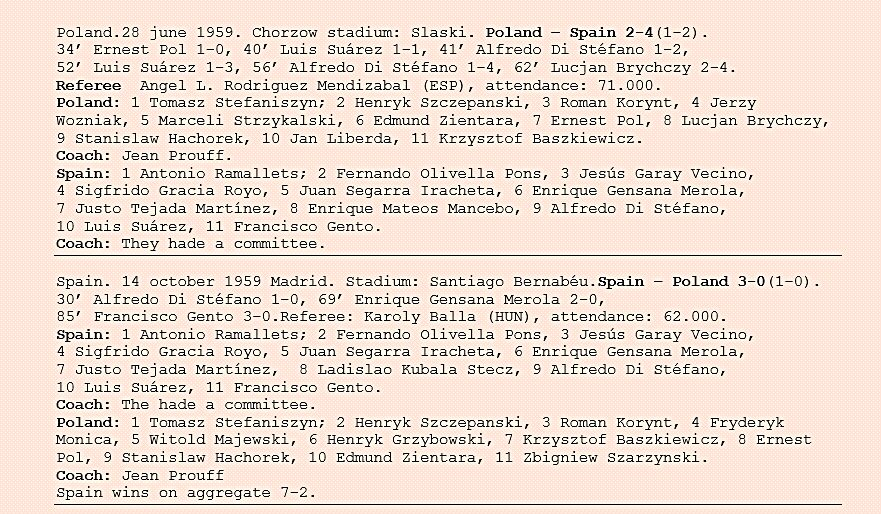
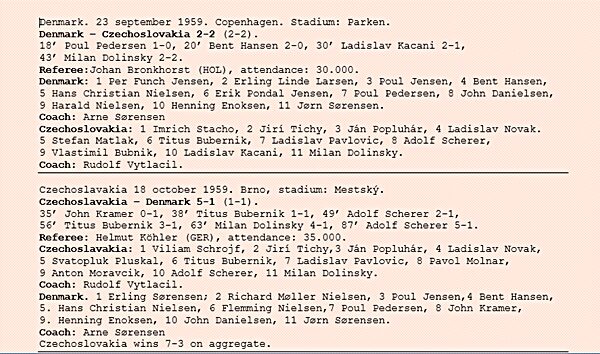
Quarter-finals
The Quarter finals were to be held in the last months of 1959 and the first month’s in the ‘60’s.There was one very surprising act for one venue. Spain was due to play against Russia. The dictator of Spain, Franco ordered the Spanish football team to return from their trip to Russia. He hadn’t forgotten that there were Russians who fought against the Spanish army in their war. The president of the Spanish Liga Lafuente Chaos who tried to repair the decision got a NO as answer from Franco. The secretary of the UEFA Pierre Delaunay proposed to play on a neutral pitch which decision was accepted by Freanco.
The Russians hwoever didn’t accept that because they thought that the Spaniards would be guilty for their refusal to play. That was the way it went and the Russians were placed in the semi finals.Russia bye.Spanish protest. In the quarter-finals, the Soviet Union had a slice of good fortune when General Franco’s right-wing government pulled Spain out of the tie. The hosts France, Yugoslavia and Czechoslovakia also won through to the semi-finals.
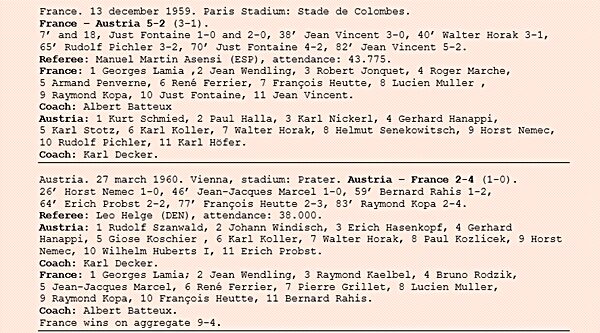
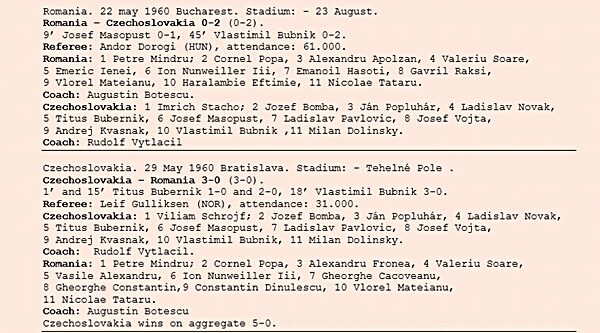
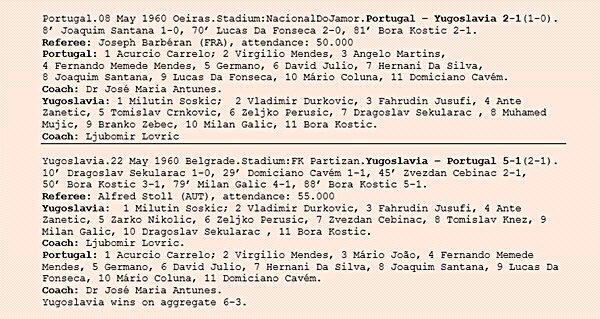
European Championship 1960 – Goal Scorers
5 Gls – Titus BUBERNÍK (Czechoslovakia), Just FONTAINE (France), Jean VINCENT (France)
4 – Milan GALIC (Yugoslavia)
3 – Erich HOF (Austria), Horst NEMEC (Austria), Vlastimil BUBNÍK (Czechoslovakia), Milan DOLINSKÝ (Czechoslovakia), François HEUTTE (France), Mário Esteves COLUÑA (Portugal), Valentin Kozmitsch IVANOV (Soviet Union), Alfredo di STEFANO Lauhté (Spain), Borivoje KOSTIC (Yugoslavia),
2 – Ladislav PAVLOVIC (Czechoslovakia), Adolf SCHERER (Czechoslovakia), Thadée CISOWSKI (France), Raymond KOPASZEWSKI (France), Ove ÖDEGAARD (Norway), Domiciano Gomes CAVEM (Portugal), Sebastião Lucas da Fonseca MATATEU (Portugal), Slava METREVELI (Soviet Union), Viktor PONEDELNIK (Soviet Union), Luis SUÁREZ Miramontez (Spain), LEFTER Küçükandonyadis (Turkey), Dražen JERKOVIC (Yugoslavia)
1 – Walter HORAK (Austria), Rudolf PICHLER (Austria), Erich PROBST (Austria), Karl SKLERAN (Austria), Todor DIEV (Bulgaria), Ladislav KACANI (Czechoslovakia), Josef MASOPUST (Czechoslovakia), Imrich STACHO (Czechoslovakia), Bent HANSEN (Denmark), John KRAMER (Denmark), Poul PEDERSEN (Denamark), Stéphane BRUEY (France), Jean Jacques MARCEL (France), Bernard RAHIS (France), Maryan WISNIESKI (France), Horst KOHLER (GDR), Gerhard VOGT (GDR), Ilias IFANTIS (Greece), János GÖRÖCS (Hungary), Noel CANTWELL (Ireland), Liam TUOHY (Ireland), Lucjan Antoni BRYCHCZY (Poland), Ernest POL (Poland), Joaquim SANTANA Guimarães (Portugal), Gheorghe CONSTANTIN (Romania), Constantin DINULESCU (Romania), Nicolae OAIDA (Romania), Anatolyi Mikhailovitsch ILYIN (Soviet Union), Yuri VOINOV (Soviet Union), Francisco GENTO López (Spain), Enrique GENSANA Merola (Spain), Zvezdan CEBINAC (Yugoslavia), Tomislav KNEZ (Yugoslavia), Muhamed MUJIC (Yugoslavia), Dragoslav ŠEKULARAC (Yugoslavia), Lazar TASIC (Yugoslavia), Ante ŽANETIC (Yugoslavia),
own goal – Roger MARCHE (France) for Greece.
By Pjerin Bj. © Reserved material | The exclusivity on this page is dated June 21, 2024.
_______________________
Sports Vision + / The Hour of the Champions in action since 2013
References: Calcio 2000 (personal collection 2000-2004) / Website: rsssf.com (tab of results and statistics).
Follow us: Facebook: https://www.facebook.com/VizionSportiv Dailymotion: https://www.dailymotion.com/kinetografiashqiptareartisporti Blog: https://pierosportvision.blogspot.com/
Discover more from Sports Vision +
Subscribe to get the latest posts sent to your email.


